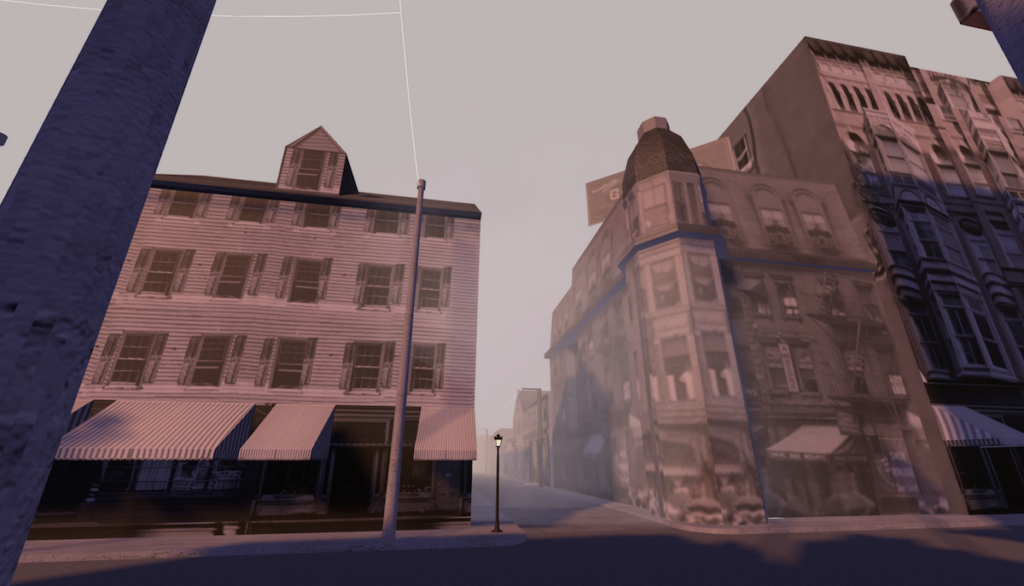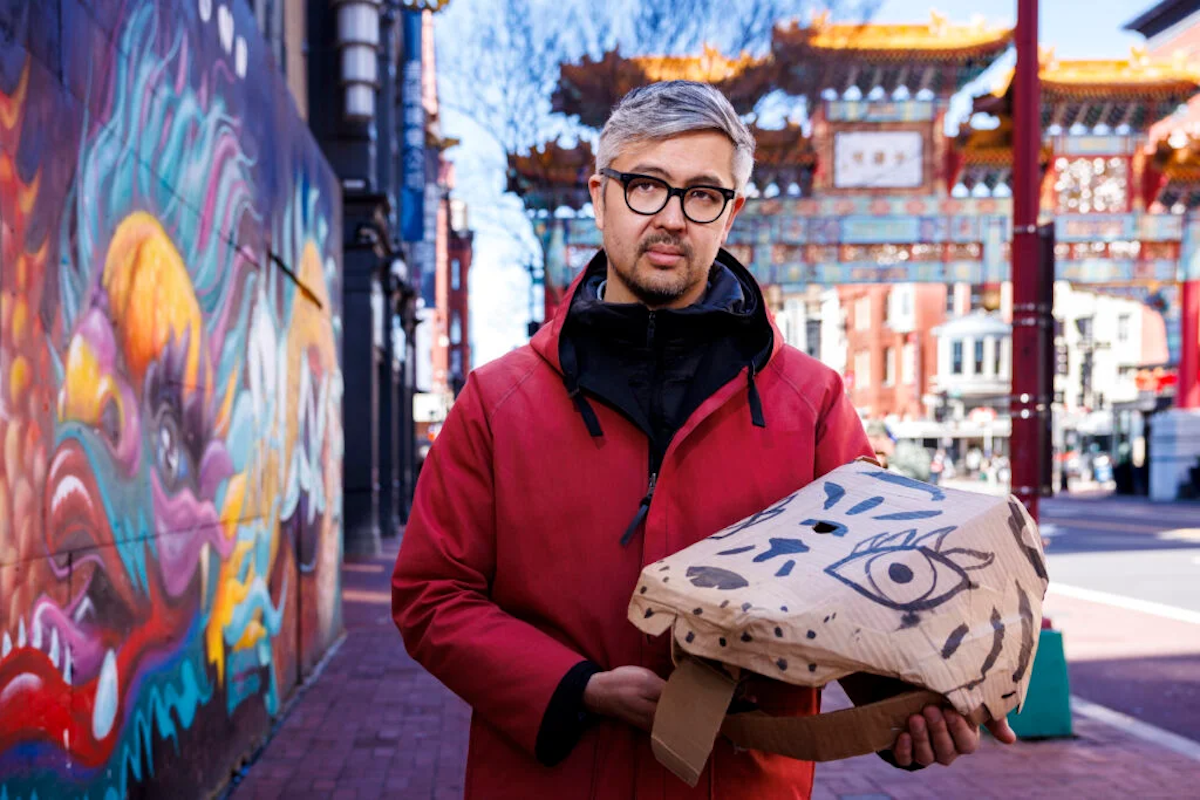KINGSTON, R.I. – Oct. 24, 2023. – A small Chinatown neighborhood—taking up a few blocks—thrived in the late 19th and early 20th centuries in downtown Providence. Little is left today. But Providence-based artist-educator Jeffrey Yoo Warren has recreated the enclave with an interactive virtual 3D model.
Yoo Warren will bring his ongoing project “Seeing Providence Chinatown” to the University of Rhode Island’s Higgins Welcome Center on Thursday, Nov. 2, at 4 p.m. His presentation, which is free and open to all, is part of the Center for the Humanities’ lecture series, “Innovations in Storytelling.”

“We’re very excited to include Jeff Yoo Warren in our yearlong series,” said Evelyn Sterne, director of the center. “As an artist and researcher, Jeff brings a unique approach to telling stories about the past. His project to create a 3D model of Providence’s historic Chinatown is a truly innovative digital humanities project—sure to appeal to anyone with an interest in the growing field of digital humanities.
“The project also represents an important effort to bring to light the history of Providence’s small and largely forgotten Chinatown. Historians of Rhode Island have tended to focus on groups such as the Irish, Italians, French Canadians and Portuguese who dominated the ethnic landscape in the 19th and early 20th centuries, overlooking the smaller population of Chinese Americans—and other Asian Americans—who had an important role in our state’s history.”
Yoo Warren, a member of the Providence arts collective AS220 and an educator with Movement Education Outdoors, is the 2023 Innovator in Residence at the Library of Congress, where he is working on the broader project “Seeing Lost Enclaves.” His current artistic practice explores how people build identity and strength through interactions with artifacts and histories, and the way objects tell stories that people can be part of in the present.
Providence’s Chinatown was centered on Empire and Westminster streets—not far from where the Providence Public Library still stands—and was home to about 100 people of Chinese descent. With a half dozen Chinese restaurants, grocery stores, laundries and other businesses, it attracted Chinese Americans from across the state and the region. But in the early 1900s, the neighborhood was targeted for demolition as part of a project to widen Empire Street.
“I guess I’m really interested in not just remembering that this did exist, but understanding what it means today,” he told The Public’s Radio in March 2022. “[Some] of those stories continue today, but also there are so many other people who have come to this city over the years and had their own distinct experiences of being here, and then perhaps having their histories kind of erased or ignored.”
Yoo Warren, who lived in the neighborhood, didn’t learn of its history until he came across a temporary plaque that briefly mentioned Chinatown. He has used archival photography that he found in the Providence Journal, library and city archives to construct an immersive digital 3D model of the enclave that evokes the feeling of walking the streets in Providence’s Chinatown, he told The Public’s Radio.
“Archival media offers a selective and partial view into the lives of marginalized communities, and those few accounts which exist of nonwhite communities are often distorted by contemporary racist views,” he wrote on the project’s website. “My hope is to use the process of virtual reconstruction to enable the public to see and experience this unique neighborhood as a vibrant and viral part of our history, and to enable a re-connection with a space that was erased from a very familiar part of today’s Providence.”
The Center for the Humanities’ lecture series will continue in the spring, concluding April 11 with a presentation by Ruth Ozeki, a novelist, filmmaker and Zen Buddhist priest, as part of the spring humanities festival.

